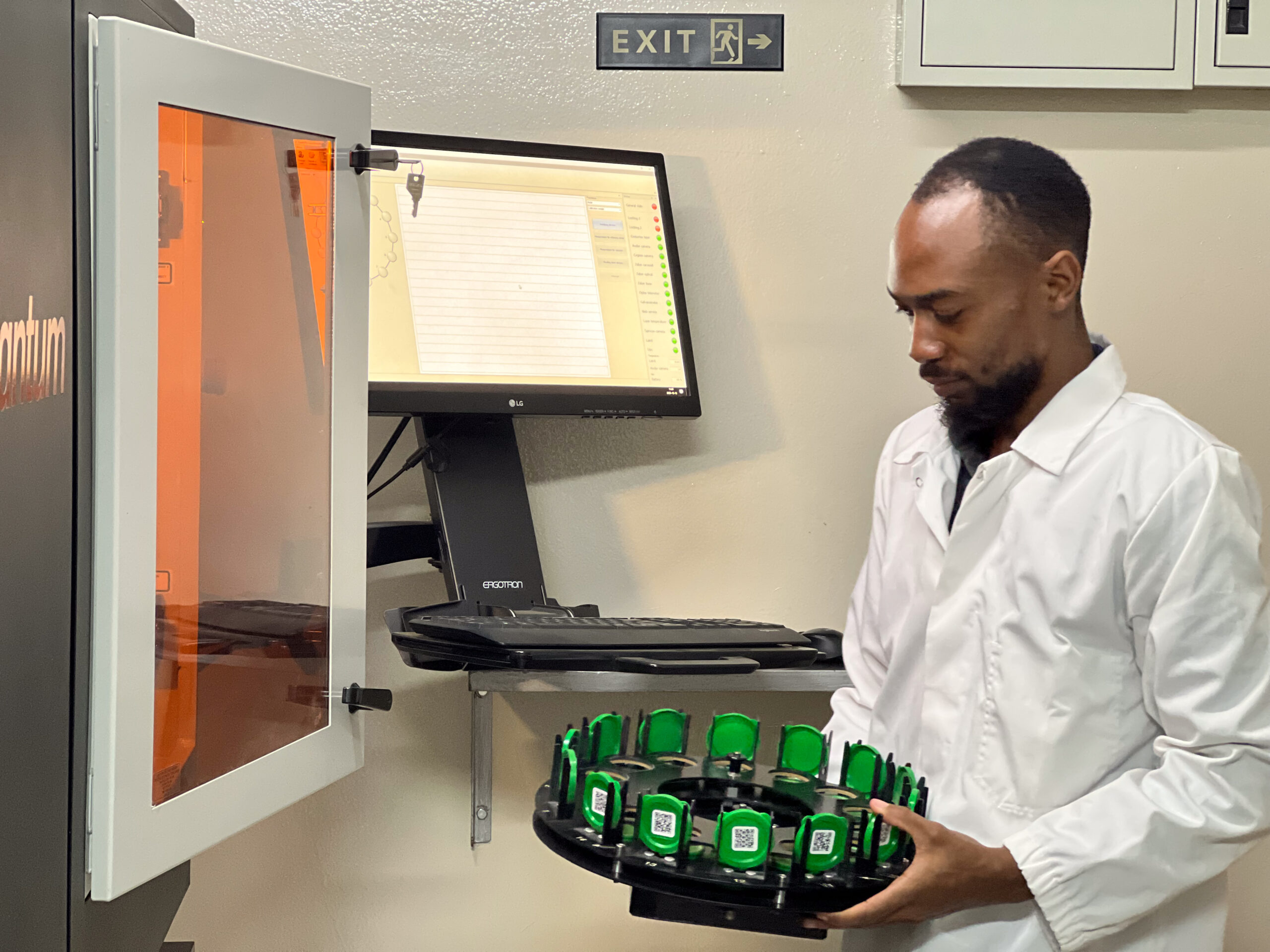Omnia Fertilizer has been operating in Zambia for over 30 years. With the establishment of Omni Tech Laboratory, which hosts the ground breaking LaserAg Quantum technology, they are refining soil analysis to strengthen farming decisions in Zambia.
LaserAg technology is a soil, forage and plant tissue analysis technology that utilises Laser Induced Breakdown Spectroscopy (LIBS) to analyse soil samples in minutes. This revolutionary technology was developed by LogiAg, from Canada and is the same technology used to analyse the soil samples taken from Mars by the Mars rover. It is faster, greener, cheaper, and easier to operate than traditional methods.
How does LaserAg work?
The process employs a high pulsed laser to generate plasma on a sample surface. The distinct electromagnetic radiations emitted are then measured, leading t oa rapid and precise determination of the soil’s elemental composition. This facilitates informed farming decisions.
Unlike traditional methods it abstains from using chemicals and minimises the risk of environmental contamination, from improper disposal methods.
LaserAg technology minimises human interference resulting in more accurate results with reduced sample contamination and fewer random errors.
Peter Mwansa, Laboratory Analyst for Omnia, says this improvement in soil analysis has enhanced the quality of advisory services by Omnia’s agronomists.
Omnia is hands on
Omnia takes pride in its holistic approach, which is anchored in the concept of Nutriology
“The goal is to maximise returns while simultaneously reducing farming and environmental risks,” says Peter. The LaserAg technology ties in with this approach and farmers will get precise soil analysis with this cutting-edge technology leading to optimised fertiliser use.
“This contributes to more tailored recommendations, efficient resource utilisation, and environmental sustainability, all in line with the overarching goals of Nutriology and Omnia’s holistic approach to agriculture,” explains Peter.

Sample surfaces with plasma ready to be analysed by the new LaserAg technology.
Quick and easy analysis
Traditional wet chemical methods take days to complete the analysis but with the LaserAg technology farmers can enjoy a quick turnaround time. In just a few minutes, this device provides a multitude of parameters crucial for agronomists to assist farmers.
Kobus Smith, Omnia Zambia Marketing Director explains one of the biggest advantages is the turnaround time which enables them to identify issues quicker and correct nutrient deficiencies faster.
“You have to make quick decisions in agriculture especially if you do investigations on nutrient deficiencies and crops.”
Over four years, we collected soil samples from different regions and had them analyzed by independent labs. Omnia consistently gathered this data and forwarded it to LogiAg. Subsequently, LogiAg developed algorithms for the LaserAg Quantum technology to predict soil elemental composition in a dry way.
Omnia is currently developing a plant tissue calibration to analyze leaf and other tissue samples.
The potential of the LaserAg technology is untapped and can lead to optimised crop management, data-driven decision making for farmers, global food security and environmental stewardship.
Changing soil analysis in Zambia
Kobus says the Zambian government has been supporting small-scale farmers, who primarily cultivate maize, with the same type of fertilizers such as D Compound and Urea for decades.
“As soil scientists and agronomists we know you cannot use the exact same combination of fertiliser for an entire country. LaserAg can be used to map Zambian soils and identify specific fertiliser types for the different regions. There is an opportunity for Omnia to fulfil the role of mapping Zambia’s soil and recommending a better combination of NPK fertilisers.”
This cutting-edge technology provides Omnia with a competitive advantage in the agricultural industry. Setting the company apart by offering rapid and precise insight into soil conditions.
Although Omnia is busy bringing this technology to South Africa as well, they decided to roll it out in Zambia first. In the past soil samples were sent to South Africa but customs regulations and restrictions made it a delayed and timely process.
Omnia’s is looking at analysing the soil of their Zimbabwe sister company as well in the future. Their current long-term goal however is to service the entire Zambian community and they are already outsourcing for local Zambian companies and individuals.
They would also like to help small scale farmers on a larger scale. Kobus says when it comes to small scale farmers, he would like to see an NGO or Aid organisation use their funding on a project like this, instead of the traditional methods that do not work so well.

A soil sample prepped and ready to be analysed by Omnia’s new LaserAg technology.
To learn more about the soil analysis and fertiliser solutions Omnia can provide to you visit their website on www.omnia.co.za or contact Peteron +260-096-764-0406 about the LaserAg technology.









